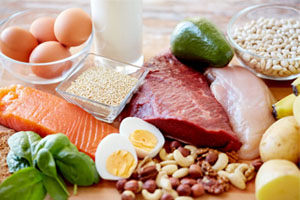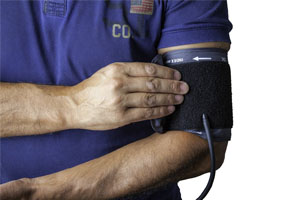Discover the most effective running strategies for weight loss in our comprehensive guide Learn how to make the most of your running routine and achieve your weight management goals with expert insights and tips
Running is an excellent way to shed those extra pounds and achieve your weight loss goals. Whether you're a seasoned runner or just getting started, understanding the most effective running strategies is crucial for successful weight management. In this comprehensive guide, we will explore the most efficient techniques, suitable running types, and valuable insights into combining running with nutrition for optimum results. Whether you aim to trim down, improve your fitness, or simply enjoy the many health benefits of running, this guide will provide you with the knowledge and tools to make the most of your running routine.

The Role of Running in Weight Loss
Running is a highly effective method for weight loss. It goes beyond just burning calories; it encompasses a range of physiological and psychological benefits that contribute to successful weight management.
Why is running an effective exercise for weight loss?
Running is a high-impact aerobic exercise that engages multiple muscle groups, including your legs, core, and upper body. This not only leads to calorie expenditure but also elevates your heart rate, which boosts your metabolism. A higher metabolism means you burn more calories, even at rest. Consistent running helps create a calorie deficit, a crucial factor for weight loss. When you burn more calories through running than you consume, your body starts utilizing stored fat for energy, leading to weight loss.
How does running help create a calorie deficit?
Running, as a calorie-burning activity, contributes significantly to creating a calorie deficit. To lose weight, you need to consume fewer calories than you expend. Running helps tip the balance by burning calories and increasing your daily energy expenditure. As you continue your running routine, the cumulative calorie deficit results in gradual and sustainable weight loss.
But running's role in weight loss goes beyond calorie counting. It also impacts your physiology and psychology.
Physiological Benefits:
Running stimulates the release of endorphins, often referred to as "feel-good" hormones. These endorphins help reduce stress and alleviate symptoms of anxiety and depression, which can often lead to emotional eating. Additionally, running enhances insulin sensitivity, improving the way your body regulates blood sugar levels. This reduces the risk of insulin resistance and type 2 diabetes.
Your body adapts to the physical demands of running by becoming more efficient at using stored fat as an energy source. As your body composition changes, you'll notice improvements in both your weight and overall health.
In summary, running provides numerous physiological benefits that contribute to weight loss by increasing calorie expenditure, enhancing metabolism, reducing stress, and improving insulin sensitivity.
Choosing the Right Running Approach
When it comes to running for weight loss, selecting the right approach is crucial. The type of running you choose and how you structure your running plan can greatly impact your weight loss journey. Here's what you need to consider:
What is the best type of running for weight loss?
The most effective types of running for weight loss include interval training and long-distance running.
Interval Training:
Interval training, such as High-Intensity Interval Training (HIIT), alternates between high-intensity bursts of running and recovery periods. This approach keeps your body challenged and your heart rate elevated, resulting in significant calorie expenditure. The variation in pace and intensity can help you burn more calories during and after your run.
Long-Distance Running:
Long-distance running at a steady pace can also be effective for weight loss. While it may not burn as many calories per minute as interval training, the longer duration of the run allows for a substantial calorie burn. It's particularly beneficial for those who enjoy endurance activities.
How to structure a running plan for effective weight loss?
An effective running plan should include a variety of running types to keep your body challenged while minimizing the risk of overuse injuries.
Consider the following when structuring your running plan:
1. Balance: Incorporate a mix of steady-state runs and interval training. Steady-state runs improve your endurance and cardiovascular health, while interval training challenges your body and helps with calorie expenditure.
2. Progression: Gradually increase the intensity and duration of your runs. This progressive approach prevents plateaus and keeps your body adapting to new challenges.
3. Rest and Recovery: Ensure you have adequate rest days in your plan to prevent overtraining and reduce the risk of injuries. Rest is when your body repairs and grows stronger.
4. Consistency: Consistency is key to long-term success. Set achievable goals, track your progress, and stay committed to your running routine.
By choosing the right type of running and structuring your plan thoughtfully, you can maximize the weight loss benefits of running while minimizing the risk of burnout or injuries.
Nutrition and Running
Nutrition plays a pivotal role in your weight loss journey when combined with running. What you eat can significantly impact your energy levels, performance, and overall effectiveness of your running routine. Here's what you need to know:
How does nutrition play a vital role in weight loss while running?
Proper nutrition is essential for sustained energy, muscle recovery, and overall health. When you're running for weight loss, you need to fuel your body efficiently and provide the right nutrients.
Your nutrition goals should include:
1. Balanced Diet: Ensure you consume a balanced diet that includes carbohydrates, proteins, and healthy fats. Carbohydrates are essential for energy, proteins aid in muscle repair and growth, and healthy fats provide long-lasting fuel.
2. Hydration: Staying hydrated is crucial for maintaining your running performance. Dehydration can lead to decreased energy levels and increased risk of injuries.
What are the best pre- and post-running meals for weight loss?
Pre-Running Meals:
Your pre-run meal should provide sustained energy without causing discomfort during your run. Consider options like oatmeal, whole-grain toast with almond butter, or a banana. These choices offer complex carbohydrates, which release energy gradually, helping you maintain your energy levels during your run. Avoid heavy or high-fiber meals close to your run to prevent digestive issues.
Post-Running Meals:
After your run, it's essential to refuel your body for recovery. Opt for a meal or snack that includes both protein and carbohydrates. This combination aids in muscle recovery and replenishing energy stores. Examples include a smoothie with protein powder and berries, a turkey sandwich, or a bowl of quinoa with vegetables.
Overall, your nutrition should support your running goals and provide the energy and nutrients necessary for successful weight loss while running. By fueling your body properly, you can optimize your running performance and achieve your weight loss objectives.
Common Mistakes to Avoid
While running is a highly effective method for weight loss, it's important to be aware of common pitfalls that can hinder your progress. By avoiding these mistakes, you can ensure a more successful weight loss journey through running:
What are the common pitfalls to watch out for while running to lose weight?
1. Overtraining:
One of the most common mistakes is overtraining. Pushing yourself too hard without adequate rest and recovery can lead to burnout, fatigue, and even injuries. It's essential to strike a balance between training and rest to avoid overuse injuries and ensure long-term success.
2. Inadequate Rest:
Rest and recovery are crucial for your body's growth and repair. Not allowing your body sufficient time to recover can impede your progress. Ensure you incorporate rest days into your running routine to prevent overtraining and injuries.
3. Improper Form:
Running with improper form can lead to a range of issues, from muscle imbalances to injuries. It's essential to focus on your running technique, including your posture, stride, and foot placement. Consider working with a running coach or physical therapist to improve your form and avoid injuries.
How to stay motivated and consistent with your weight loss running routine?
1. Set Clear Goals:
Setting clear and achievable goals can help you stay motivated. Whether it's a specific weight loss target or a race you want to participate in, having a goal in mind provides direction and purpose for your running routine.
2. Track Your Progress:
Monitoring your progress is essential for staying motivated. Keep a running journal or use fitness tracking apps to record your runs, distances, and times. Seeing your improvements over time can be highly motivating.
3. Find a Running Buddy or Community:
Running with a friend or joining a running community can make your runs more enjoyable and provide a support system. It's easier to stay motivated when you have someone to share your running journey with.
4. Celebrate Milestones:
Recognize and celebrate your achievements along the way. Whether it's completing a challenging run or reaching a weight loss milestone, acknowledging your progress can keep you motivated and committed.
By avoiding common mistakes, staying motivated, and maintaining consistency in your running routine, you can achieve your weight loss goals while enjoying the numerous benefits of running.
FAQs about Running for Weight Loss
Q1: How effective is running for weight loss?
A1: Running is a highly effective exercise for weight loss. It engages multiple muscle groups, elevates heart rate, and boosts metabolism, resulting in calorie burning and creating a calorie deficit essential for weight loss.
Q2: What is the best type of running for weight loss?
A2: The best types of running for weight loss include interval training, such as HIIT, and long-distance running. Interval training challenges your body with high-intensity bursts, while long-distance running offers a steady, calorie-burning option.
Q3: How important is nutrition in weight loss when running?
A3: Nutrition plays a vital role in your weight loss journey. Consuming a balanced diet with the right proportions of carbohydrates, proteins, and healthy fats is crucial. Proper nutrition supports energy, muscle recovery, and overall health.
Q4: What are the common mistakes to avoid while running for weight loss?
A4: Common mistakes include overtraining, inadequate rest, and running with improper form. Overcoming these pitfalls is crucial for long-term weight loss success.
Q5: How can I stay motivated and consistent with my weight loss running routine?
A5: Setting clear goals, tracking progress, finding a running buddy or community, and celebrating milestones can help you stay motivated and consistent in your weight loss running routine.










